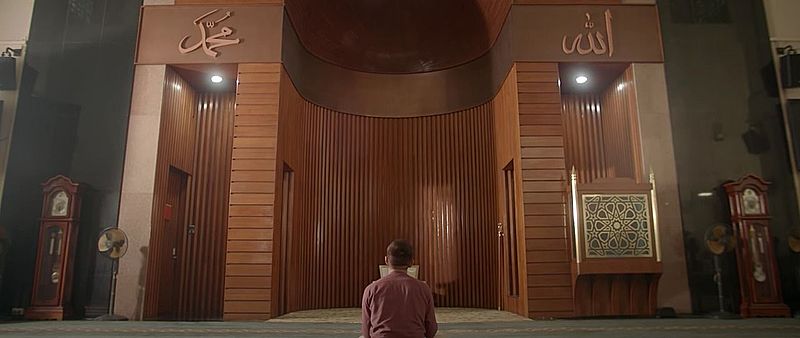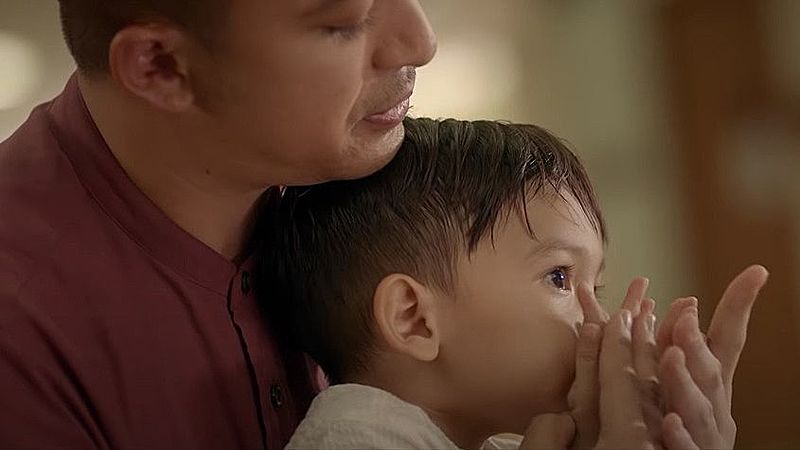5 Benefits of Congregational Prayers in Islam
Virtues of Congregational Prayers in Islam
Praise be to Allah.
Every Ramadan, one of the activities we look forward to is the daily Terawih prayers. Many of us would use the opportunity of this blessed month to go to the mosque to perform the Terawih prayers in congregation.

On that note, however, Rasulullah s.a.w. also taught us that we can pray at home, and we can do it with our loved ones. This is especially so when some of us may have work or other commitments to attend to. It is understandable if We may feel disappointed we're unable to go to mosques.
It's alright, we can continue to enliven the spirit of Ramadan at home by performing Terawih prayer and other prayers with our homies. For steps on performing the Jema'ah prayer, read How to Pray in Congregation at Home.

Here are 5 benefits of praying in congregation (Jema'ah prayer):
The Virtues of Congregational Prayer
27 Times More Rewards Than Performing Individual Prayer
صَلَاةُ الجَمَاعَةِ أَفضَلُ مِن صَلاَةِ الفَذِّ بِسَبعٍ وَعِشرِينَ دَرَجَة
"Solat (prayer) in congregation is twenty-seven times more rewarding than a Solat performed individually."
(Sahih Al-Bukhari and Muslim)1
If we are to look into the history of the life of our Prophet Muhammad s.a.w. and his Companions r.a, we would certainly find that our Prophet Muhammad s.a.w. and the companions had never left their Fardhu prayer without praying in congregation in the mosque. They would pray in congregation unless the condition or situation did not permit them to do so such as pandemic situations, heavy rain and when it was too dangerous or too inconvenient for everyone to pray in the mosque. Only then would they dismiss themselves from the congregational prayer.
Gain Allah’s Pleasure
وَإِنَّ صَلاَةَ الرَّجُلِ مَعَ الرَّجُلِ أَزْكَى مِنْ صَلاَتِهِ وَحْدَهُ وَصَلاَتُهُ مَعَ الرَّجُلَيْنِ أَزْكَى مِنْ صَلاَتِهِ مَعَ الرَّجُلِ, وَمَا كَثُرَ فَهُوَ أَحَبُّ إِلَى اللَّهِ تَعَالَى
“A man's prayer observed along with another is purer than his prayer observed alone, and his prayer with two men is purer than his prayer with just one, and whenever there are more, it is more pleasing to Allah, the Almighty.”
(Sunan Abu Dawud)3
Protection from the Syaitan (Devil)
مَا مِنْ ثَلاَثَةٍ فِي قَرْيَةٍ وَلاَ بَدْوٍ لاَ تُقَامُ فِيهِمُ الصَّلاَةُ إِلاَّ قَدِ اسْتَحْوَذَ عَلَيْهِمُ الشَّيْطَانُ فَعَلَيْكُمْ بِالْجَمَاعَةِ فَإِنَّمَا يَأْكُلُ الذِّئْبُ الْقَاصِيَةَ
“If three men in a village or in the desert, make no arrangement for Solat in congregation, Satan must have certainly overcome them. So observe Solat in congregation, for the wolf eats up a solitary sheep that stays far from the flock.”
(Sunan Abu Dawud)4
Foster our kinship and matrimonial relationship
Allah s.w.t. emphasizes the importance of guarding our Solat. In the middle of the verses from Surah Al-Baqarah regarding familial relationships and matrimonial affairs (i.e. verses 223-242), Allah s.w.t. mentions in Surah Al-Baqarah:
حافِظوا عَلَى الصَّلَواتِ وَالصَّلاةِ الوُسطىٰ وَقوموا لِلَّهِ قانِتينَ
“Guard strictly your (habit of) prayers, especially the Middle Prayer; and stand before Allah in a devout (frame of mind).”
(Surah Al-Baqarah, 2:238)
Sheikh Dr Wahbah Az-Zuhaili5 opines that one of the reasons why Allah s.w.t. mentions about guarding our Solat in the midst of verses pertaining to familial relationships is due to the important fact that Solat guards the family members such as husbands and wives from having ill thoughts about each other, and guard them against all forms of evil, and the whisperings of Syaitan. If they are not careful, this could cause discord in familial and matrimonial relationships.
Praying in a congregation with family members would further deter the members from falling into the whisperings of Syaitan. Furthermore, congregational prayers foster the ties of communal kinship as we tend to salam one another after every Solat and this may diffuse the fire of enmity and hatred that could have been developed daily, and fill our hearts with Rahmah (mercy) and Ihsan (empathy and sympathy) towards one another.

Imagine if we keep on performing our congregational prayers together daily. Not only that we are rewarded by Allah s.w.t. abundantly, but we also help ourselves improve our family ties and guard ourselves against the evil temptation of Syaitan, Insya’Allah.
Reward throughout the prayers of those in congregational prayers
According to Sheikh Daud Al-Fathani,6 when praying individually, the rewards of prayer will only be given for the parts of prayers that one maintains his or her Khusyu’ (presence and focus in prayer).
However, full rewards are given to those who pray in congregation even when he or she struggles to maintain Khusyu’ throughout the entire period of the congregational prayer.
Let us take the opportunity of this blessed Ramadan to enlighten our homes by performing congregational prayers with our loved ones. A home that is ignited with prayer is a home that is blessed Insya’Allah.
References:
1Abu Zakariya Yahya bin Syaraf An-Nawawy, 676H. Riyadh As-Solihin, Book 9, The Book of Virtues, Hadith 1064
2Abu Al-Mawahib Abdul Wahhab Bin Ahmad Al-Sya’rani, 973H. Al-Minah As-Saniah Ala Al-Wasiyyati Al-Mabtuliyyah. Beirut; Dar Al-Kotob Al-Ilmiyah.
3Abu Dawud Sulayman Bin Ash`ath Al-Azadi Al-Sijistani, 276H. Sunan Abi Dawud, Book 2, The Book of Solah, Hadith 554
4ibid. Book 9, The Book of Virtues, Hadith 1070
5Wahbah Mustafa al-Zuhayli, 1435H. Tafsir Al-Munir, Volume 1, pg 763-767. Syria; Dar Al-Fikr.
6Daud Abdullah Al-Fathani, 1265H. Munyatul Musalli, pg 122. Malaysia; Telaga Biru Publication.

